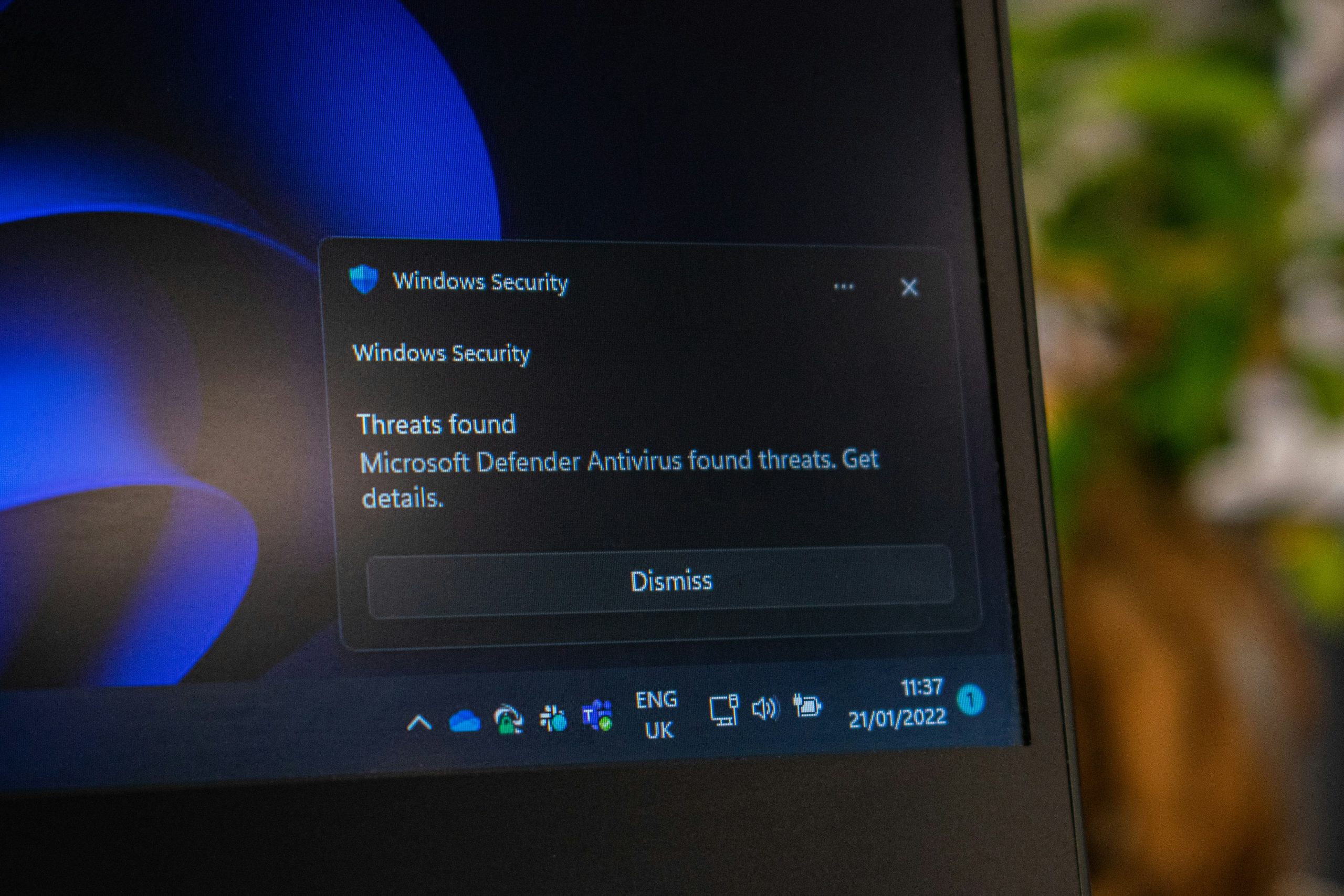As I was mindlessly scrolling through my junk folder, expecting nothing but the usual clutter of spam emails, I stumbled upon a treasure trove of deceit and deception – the 5 Worst Phishing Scams. These cunning attempts to trick unsuspecting victims into revealing sensitive information had eluded my detection until now. From fake lottery winnings to urgent bank account updates, each email was a carefully crafted web of lies waiting to ensnare its next victim. Join me on a journey through the dark underbelly of cybercrime as we uncover these elaborate schemes and learn how to protect ourselves from falling prey to their malicious intentions.
- Introduction: Exploring common phishing scams in junk emails
- Urgent Account Verification: Requesting personal information urgently
- Prize Winnings: Claiming false lottery or contest prizes
- Charity Scams: Fake donation requests for sympathy
- Fake Tech Support: Falsely offering tech assistance services
- Government Agency Impersonation: Posing as IRS or FBI
- Conclusion: Tips to avoid falling for phishing scams
Introduction: Exploring common phishing scams in junk emails
As you sift through your junk email folder, you may encounter a flurry of messages luring you into various phishing scams. From promises of extravagant prizes to urgent notifications requiring immediate action, the tactics used by cybercriminals to deceive are constantly evolving. One common phishing scam involves emails appearing to be from trusted financial institutions, requesting sensitive information such as login credentials or account details under the guise of security verification.
Another prevalent scheme preys on individuals’ fear or curiosity by mimicking official government agencies or law enforcement bodies. These emails often threaten legal consequences or claim urgent issues with your taxes or immigration status, prompting hasty and ill-advised responses. By tapping into human emotions and exploiting vulnerabilities, these scammers aim to manipulate victims into divulging personal information that can lead to identity theft and financial loss. Remember, vigilance is key when navigating the murky waters of junk emails teeming with deceptive traps set by cyber predators.

Urgent Account Verification: Requesting personal information urgently
Urgent account verification emails are a classic phishing scam tactic that preys on people’s fear of losing access to their accounts. These emails often create a sense of urgency, requiring users to provide personal information immediately or risk having their account locked or suspended. However, it’s important to remember that legitimate companies will never ask for sensitive information like passwords or social security numbers via email.
The urgency created by these scams can cloud judgment and lead individuals to give away valuable personal information without hesitation. It’s crucial to stay vigilant and double-check the authenticity of such requests by contacting the company directly through official channels. Remember, it’s always better to be cautious than sorry when it comes to protecting your personal data from phishing attacks.
Prize Winnings: Claiming false lottery or contest prizes
Prize Winnings: Claiming false lottery or contest prizes can be a slippery slope that leads to financial disaster and emotional distress. Scammers prey on unsuspecting individuals by offering large sums of money in exchange for personal information or upfront fees. The allure of winning a prize can cloud judgment and push people into making impulsive decisions that they later regret.
Many victims of these scams find themselves trapped in a cycle of false promises and never-ending requests for more money. Once you’ve fallen for the trap, it’s challenging to extricate yourself without suffering significant losses. Remember, if something sounds too good to be true, it probably is. Stay vigilant and always verify the legitimacy of any prize winnings before sharing your personal information or parting with your hard-earned cash.

Charity Scams: Fake donation requests for sympathy
Charity scams prey on the generosity and goodwill of individuals, using fake donation requests to elicit sympathy and ultimately swindle money. These scammers often capitalize on recent tragedies or heart-wrenching stories, manipulating emotions to increase their chances of success. The rise of online communication has made it easier for these deceitful schemes to reach a wider audience, making it crucial for individuals to remain vigilant and verify the legitimacy of any charitable appeal they encounter.
Victims of charity scams not only face financial loss but also experience emotional distress from being taken advantage of during times when they intended to offer help. These scams can tarnish the reputation of genuine charitable organizations and undermine public trust in philanthropic efforts. By raising awareness about the prevalence and tactics used in charity scams, we can empower individuals to detect and report fraudulent donation requests, ultimately deterring scammers from preying on the kindness of others.
Fake Tech Support: Falsely offering tech assistance services
Tech support scams are becoming increasingly prevalent in today’s digital world, luring unsuspecting individuals into a web of deceit. These scammers often pose as legitimate tech support agents, offering to fix imaginary issues on your computer or device for a hefty fee. By preying on the fear and lack of technical knowledge of their targets, they manage to deceive people into providing access to their systems or personal information.
The consequences of falling victim to fake tech support can be dire, ranging from financial loss due to unnecessary repairs or services to identity theft and data breaches. It’s crucial for individuals to remain vigilant and verify the legitimacy of any tech support service before granting access or handing over sensitive information. Remember, reputable tech companies will never ask for payment upfront or demand remote access without prior consent. Stay informed and arm yourself with knowledge to protect yourself from these malicious actors lurking in the shadows of the digital realm.

Government Agency Impersonation: Posing as IRS or FBI
Government agency impersonation is a deceptive tactic used by cybercriminals to instill fear and urgency in their victims. By posing as the IRS or FBI, scammers exploit individuals’ trust in authoritative institutions to trick them into revealing sensitive information or transferring money. These emails often contain official-looking logos and threatening language, creating a sense of immediate action required to avoid consequences.
One particularly concerning aspect of government agency impersonation scams is the psychological impact on victims. The fear of being investigated or facing legal repercussions can cloud judgment, leading individuals to comply without considering the legitimacy of the situation. It’s important for recipients to stay vigilant and verify the authenticity of any communication claiming to be from a government agency before taking any action. Remember, these agencies would never request sensitive information or payments through unsolicited emails.
Conclusion: Tips to avoid falling for phishing scams
As we navigate the digital landscape, it’s crucial to stay vigilant against the ever-evolving tactics of phishing scams. To avoid falling victim to these malicious schemes, remember to carefully scrutinize any unsolicited emails or messages asking for sensitive information. Be wary of urgent language or threats in the content, as scammers often try to instill fear or a sense of urgency to compel you to act impulsively.
Additionally, double-check the sender’s email address and look out for any suspicious discrepancies or typos that could indicate a fraudulent attempt. When in doubt, reach out directly to the organization through official channels instead of clicking on provided links or replying to questionable emails. By staying informed about common phishing tactics and maintaining a cautious approach, you can better protect yourself against potential cyber threats and safeguard your personal information from falling into the wrong hands.
Remember that prevention is key when it comes to shielding yourself from phishing scams. By adopting a proactive mindset and implementing these tips into your online habits, you can significantly reduce the risk of becoming entangled in fraudulent activities. Stay informed, stay alert, and always trust your instincts when something seems off – after all, an ounce of prevention is worth a pound of cure in the complex realm of cyberspace security.
